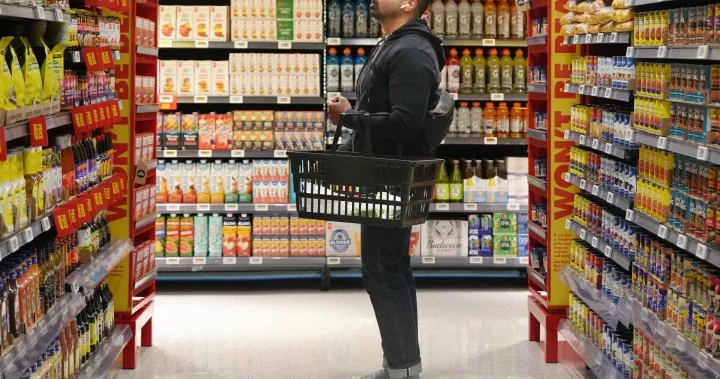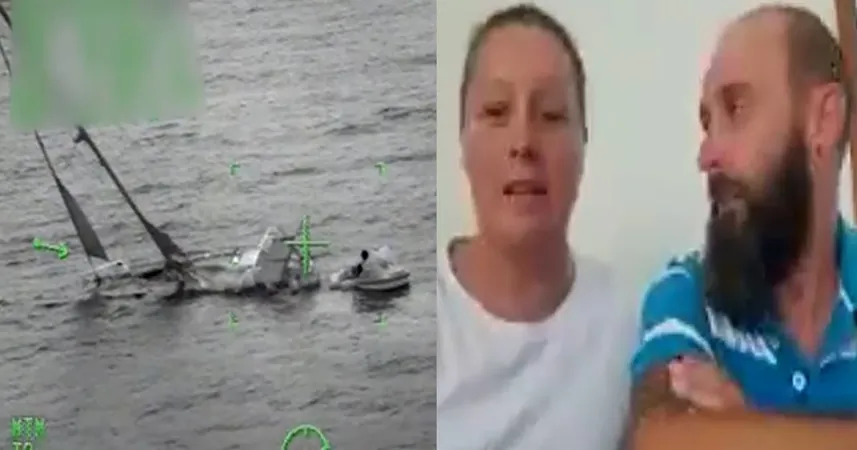
December Sees Inflation Drop to 1.8% Amid GST/HST Tax Break in Canada – What This Means for You!
2025-01-21
Author: Benjamin
In a welcome surprise for Canadian consumers, inflation rates eased to 1.8% in December, providing a respite as the federal government rolled out a tax break package that took effect on December 14. This marked a slight decrease from the 1.9% recorded in November, signaling a potential easing in the cost of living.
According to Statistics Canada, the figures reflect the impact of the temporary GST/HST tax "holiday," which has allowed consumers to enjoy lower prices on certain goods and services for a limited time. This statistical analysis found considerable price declines in categories such as food from restaurants and alcoholic beverages, both of which are exempt from the federal tax during this period. Other items, including children's clothing, toys, and hobby supplies, also experienced significant year-over-year price drops.
When excluding food items, the consumer price index indicated a 2.1% rise, highlighting that essential goods continue to see varied inflationary pressures. In particular, gasoline prices saw a year-over-year increase of 3.5%, reversing from a slight decline in November. Meanwhile, travel services noted a surge as rising demand coincided with steep price drops from the previous year.
Interestingly, British Columbia experienced an unprecedented 62% month-over-month spike in accommodation prices, coinciding with Taylor Swift’s widely publicized Eras Tour finale in Vancouver, dramatically highlighting the correlation between major events and local pricing.
With the first Bank of Canada interest rate decision of the year approaching on January 29, all eyes are on how these inflation trends will influence monetary policy. Last year, the central bank implemented five consecutive cuts to its benchmark interest rate, responding to inflation levels dropping below the 2% target. Bank Governor Tiff Macklem indicated a likely shift to a "gradual pace" of adjustments going into 2025, as the economy stabilizes.
However, industry experts like BMO chief economist Doug Porter suggest that underlying core inflation indicators may be signaling a potential uptick. The specter of renewed trade tensions and possible tariffs from the U.S., as hinted at by former President Donald Trump, adds a layer of uncertainty to the economic landscape, but Porter believes that trade concerns might outweigh short-term inflation pressures.
This nuanced inflation environment presents an opportunity for Canadians to adjust their spending habits in anticipation of potential shifts in interest rates and prices in the coming months. Stay informed to navigate these changes effectively!









 Brasil (PT)
Brasil (PT)
 Canada (EN)
Canada (EN)
 Chile (ES)
Chile (ES)
 Česko (CS)
Česko (CS)
 대한민국 (KO)
대한민국 (KO)
 España (ES)
España (ES)
 France (FR)
France (FR)
 Hong Kong (EN)
Hong Kong (EN)
 Italia (IT)
Italia (IT)
 日本 (JA)
日本 (JA)
 Magyarország (HU)
Magyarország (HU)
 Norge (NO)
Norge (NO)
 Polska (PL)
Polska (PL)
 Schweiz (DE)
Schweiz (DE)
 Singapore (EN)
Singapore (EN)
 Sverige (SV)
Sverige (SV)
 Suomi (FI)
Suomi (FI)
 Türkiye (TR)
Türkiye (TR)
 الإمارات العربية المتحدة (AR)
الإمارات العربية المتحدة (AR)